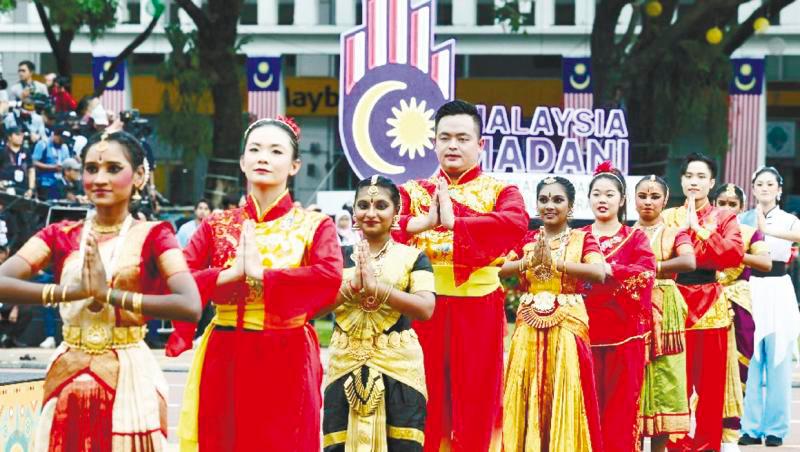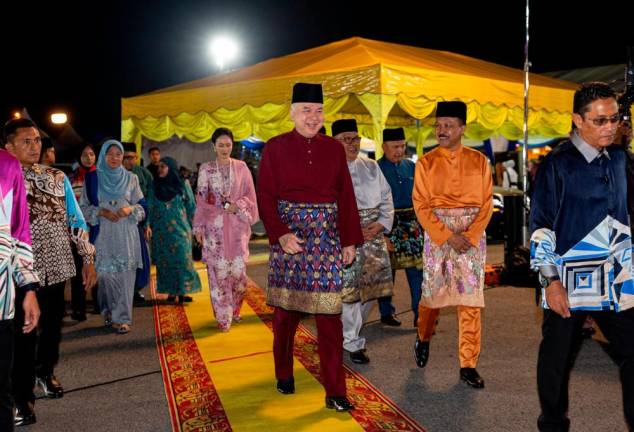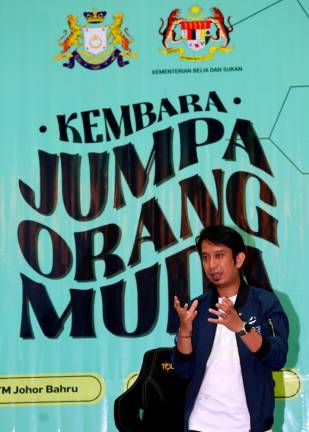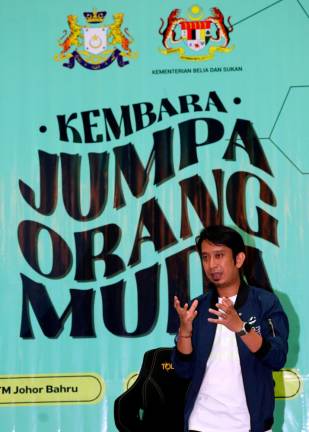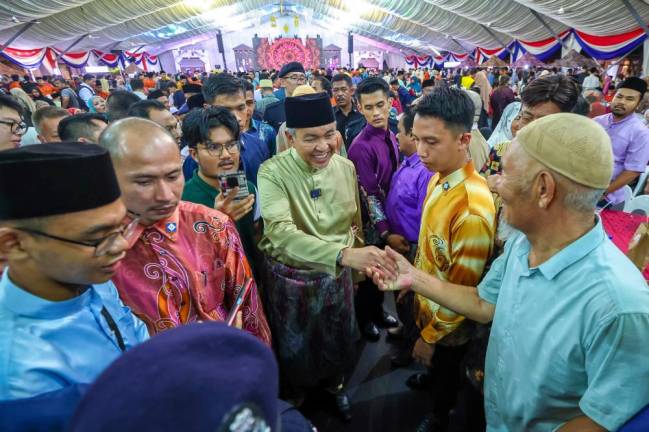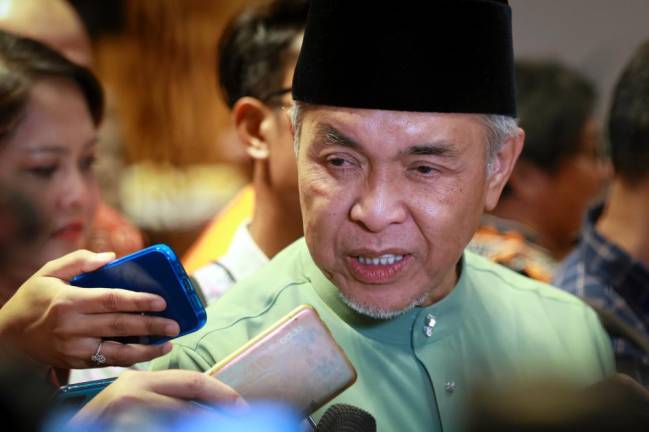ETHNIC diversity improves the way people think. Disrupting conformity prompts you to scrutinise facts, contemplate more totally and develop rational opinions of your own.
Such diversity benefits everyone, minorities and the majority alike.
This was the conclusion of two American university professors from the University of Texas and Columbia University, who conducted a series of experiments back in 2015.
Part of the research was done in Singapore involving Chinese, Indian and Malay participants.
The experiments showed that diverse groups were far more likely to produce the right answers and right solutions.
It isn’t because minorities have special knowledge. It is just that in the absence of diversity, we are easily influenced by groupthink and more likely to accept wrong ideas.
Ethnic diversity, on the other hand, keeps us from drifting towards errors and miscalculations.
Well-managed ethnic diversity is like fresh air prompting sharper thinking and benefiting everyone who experiences it.
Malaysia, like Singapore, attained world renown for ethnic diversity management back in the Merdeka days.
However, the majority of our politicians are now championing ethno-religious identity or its counterpart ethno-secularism.
If you have to pick between a plantation and a forest to depict Malaysia 2023, which will you choose if you know the biggest difference is that a forest cherishes diversity while a plantation destroys it?
In a monoculture plantation such as durian, oil palm or rubber, there are no varieties of plants that naturally provide nutrients to the soil.
There are also fewer microbes and insects to ensure that no particular species gets excessively dominant.
Last year, 30,000 hectares of pine forest in France were razed by wildfires.
The highly flammable pines burnt easily because their numbers were excessively dominant without other species to tone down the flammability.
As University of British Columbia Professor Suzanne Simard has discovered, species variety creates a more stable environment.
Her lifetime of research which she describes in her book Finding the Mother Tree shows that there is a wood-wide web of trees and mycorrhizal fungi that form part of a connected society where all lifeforms collaborate more than they compete.
Simard also found that paper birch and Douglas fir traded photosynthetic carbon back and forth, with birch giving more to fir because fir needed more.
She further observed that mycorrhizal fungi transmitted salmon nitrogen into cedar trees and Sitka spruces, and possibly between trees.
The forests returned the favour by shedding nutrients into the rivers where salmon bred.
In an interview with New Scientist Weekly two years ago, she lamented the separation of humanity from nature and that we had moved away from a holistic spiritual way of seeing the world.
Evolutionary biologist Dr Frank Ryan points out in Virusphere that the human body isn’t just composed of blood and tissue.
An ecosphere of viruses forms part of our body and one virus – cytomegalovirus – by its presence in the myeloid cells of the bone marrow helps strengthen our body’s immune system.
A paradigm shift is happening in science: no longer do biologists erect fences to separate plants, animals and microbes into separate bounded divisions.
The keyword in biology is now holobiont, meaning, every living thing owns a microbiome component or a collection of micro-organisms, most of which confer health benefits.
Biologists used to tell us there are 27 trillion cells in our body. Now the count is double that number with the inclusion of the cells of microbes.
But while nature is powered by the fuel of moderate inclusive diversity, with no pendatang except for invasive pathogens, one former politician has reportedly coined the term Parti Pendatang to label political opponents.
However, the Sultan of Johor pointed out two years ago that the Chinese are not pendatang as they have helped transform the state’s economy and are one of its pillars.
Confrontational diversity is an abomination to nature and will guarantee our destruction by climate change.
Yet we remain in the grip of confrontational politics, with some political parties championing ethno-religious identity and some other parties widely acknowledged as the champions of ethno-secular identity.
The Malay voters strongly adhere to the traditional values of their religion and believe in the authoritarian commands of their political and religious influencers.
The other Malaysian voters resolutely adhere to the traditional values of secularism, and unquestioningly believe in these secular tenets.
This strong tilt towards identity politics reveals that both the Malays and other Malaysians are highly conservative.
Politicians in one coalition advocate the rule of sacred law, while politicians on another side promote secular rule, completely ignoring the fact that there is no fundamental division between the secular and the sacred, between the temporal and spiritual worlds.
Temporal refers to the finiteness of nature and spiritual refers to the infinity behind nature.
The indigenous forest-dwelling Orang Asli, as people of nature who revere the spiritual realm, know that God is within nature. To put it metaphorically, nature is the face and hand of God.
Telling voters to choose between the sacred and the secular is like tearing the heart out of nature.
There is a higher middle ground where the secular meets the sacred, where Malays and Muslims can stand in the same spot as Malaysians of other ethnicities and religions without fearing each other or regarding each other as a threat.
But to reach this higher middle ground, there needs to be a paradigm shift by all Malaysians and a political willingness to advocate moderation.
The Yang di-Pertuan Agong in his speech at the Ma’al Hijrah national celebration two months ago pointed the way for our nation to manage its diversity.
The way is to use the spirit of hijrah or migration to a higher good.
At the Perak state-level celebration in Ipoh, the Sultan of Perak called for a migration of the mind to break free from comfort zones and embrace essential changes.
Back in January at a book launch, the Sultan of Perak spoke of the emphasis on planetary health where people’s health and well-being are inextricably connected to those of the planet.
Just a week ago, the Sultan of Selangor warned: “The country will regress in every aspect if political leaders are keen on propagating racial polarisation and instigating the people in the name of race and religion. Leaders and politicians must instead inculcate national unity among the various races.”
Malays and other Malaysians, Muslims and non-Muslims need to migrate to a higher middle ground, to a spot labelled “planetary and personal health” so that we can progress instead of regress.
In nature, there is no binary division into fundamental opposites.
Any human society that bifurcates its population into hostile irreconcilable halves is risking its survival in the face of climate change, which is itself brought on by our separation from nature and a rejection of the holistic spiritual way of seeing the world.
Our next article will explore the details of a nature-enriched lifestyle that will enhance planetary health as well as the personal health of every Malaysian while uniting all communities. Importantly, too, a courageous paradigm shift towards upgrading our lifestyles to a higher integrative quality will align all the various religions.
The writer champions interfaith harmony. Comments: letters@thesundaily.com




